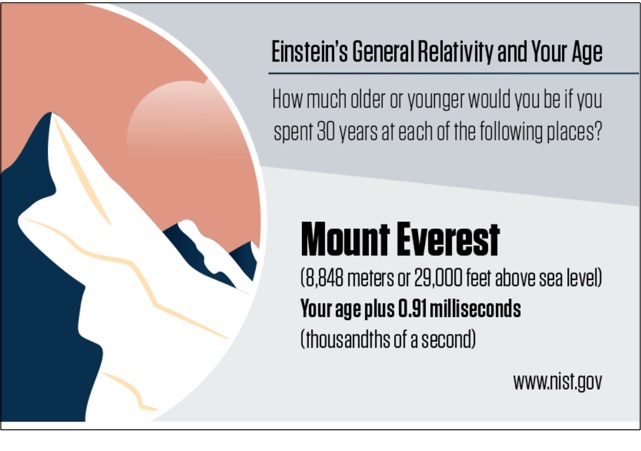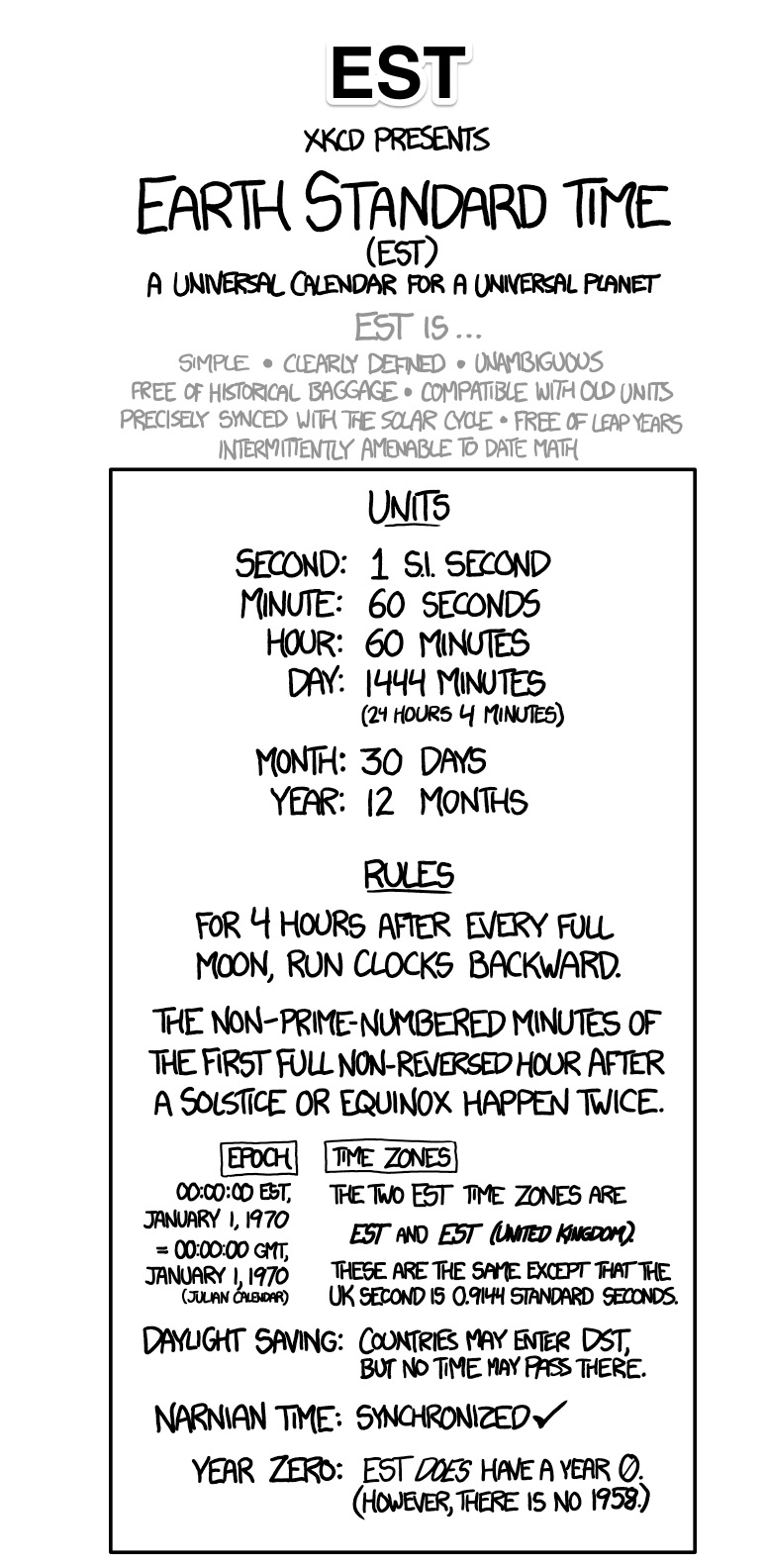According to Albert Einstein’s theory of relativity, gravity affects the speed of time. As a result, where the pull of gravity is stronger, like near the center of the earth, time moves more slowly. Consequently, the people who live in mile-high Boulder, Colorado could be .17 milliseconds older than those of us at sea level.
Similarly, if you lived for 30 years on Mount Everest, you would be .91 milliseconds older:

From here, leaping to the additional confusion created by time zones, you can see why some people and businesses needed the atomic clock that establishes UTC (Coordinated Universal Time) as the world’s standard time.
And now, we will (probably) also have LTC (Coordinated Lunar Time).
Celestial Time
Because gravity varies through the solar system, time will also differ. Responding in an April memo, the Biden Administration expressed the need for celestial time standardization. I’ve copied the beginning of their four-page letter:

Lunar Time
At approximately 58.7 microseconds a day, time moves faster on the moon. Seemingly tiny, the difference is huge when coordinating systems that need pinpoint accuracy. For navigation, data transfer, communications, indeed, for synchronizing all activities, we need to have the same time. Or, as one astrophysicist explained, ” “the way we define time on planet Earth is with an atomic clock…” and “if you took that same atomic clock up to the moon, then in 50 years it would be one second faster than the atomic clock on Earth.”
Our Bottom Line: Standardization
Before November 18, 1883, different towns and cities and villages–anyone–could decide the time. You can imagine how tough it was to create a train schedule. I assume that passengers could have a 10:30 arrival time at one destination and 10:28 for the next one.
So the railroads started to tell us what time it was. In the U.S., they drew four (sort of) vertical lines. State boundaries did not matter. Economic connections did. When it was 11 am in the East, it would be 8 am in the West. Established by the train schedules, everyone knew what time it was supposed to be.
Standardization facilitates commercial activity. The airlines use coordinated universal time so their schedules have a common reference point. Because they need to know the time to know the price, stock and commodity traders use UTC to stamp the time of a transaction. Indeed, it helps to have the same time–especially if you are working with someone who is half a globe away.
And now, we will be separated by so much more.
Perhaps though, xkcd has the best solution:
My sources and more: Lunar time coodination has been in the news, here and here. From there, this website had more of the science and my NIST relativity images. And this was the White House Memo that requests developing a Coordinated Lunar Time initiative. However, the European Space Agency memo was much more interesting.
Please note that several of today’s sentences were in a previous econlife post.







